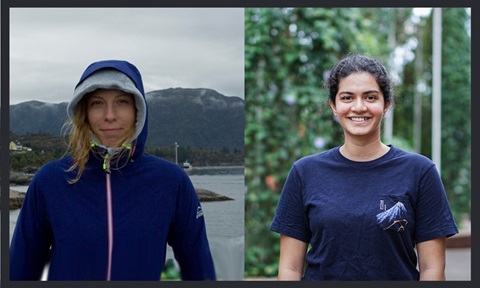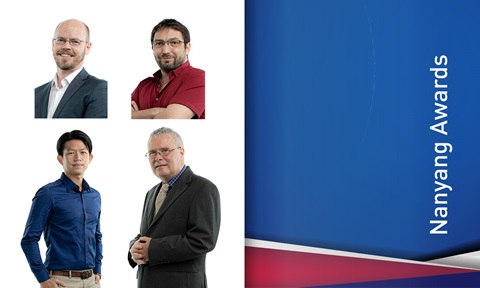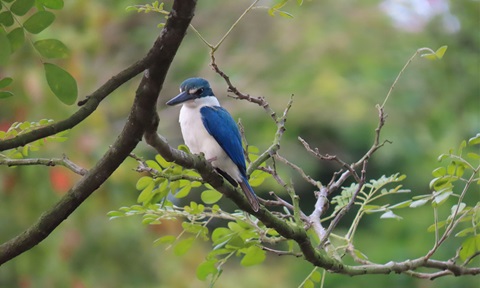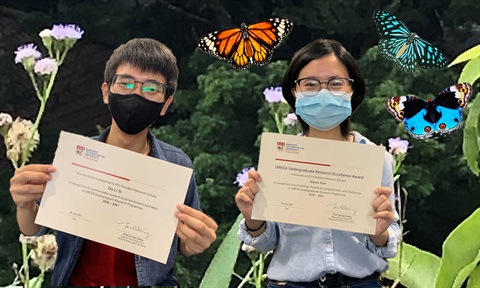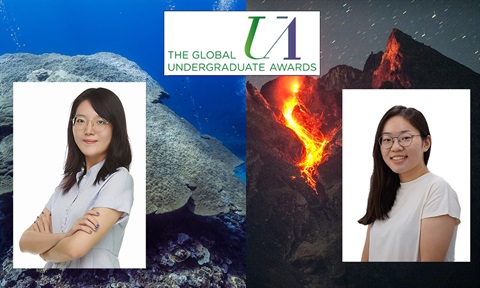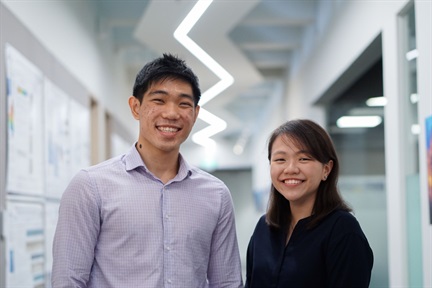Early fascination with volcanoes led to PhD on Kelud volcano, Indonesia, for Sri Budhi Utami
Just in the two months of October and November 2021, six PhD students will have orally defended their PhD thesis after four years of research and study. Here we catch up with one of them to find out more on her experience of doing a PhD at ASE. Dr Sri Budhi Utami passed her oral defense on 11 October 2021, earning her doctorate, which is the highest university qualification.
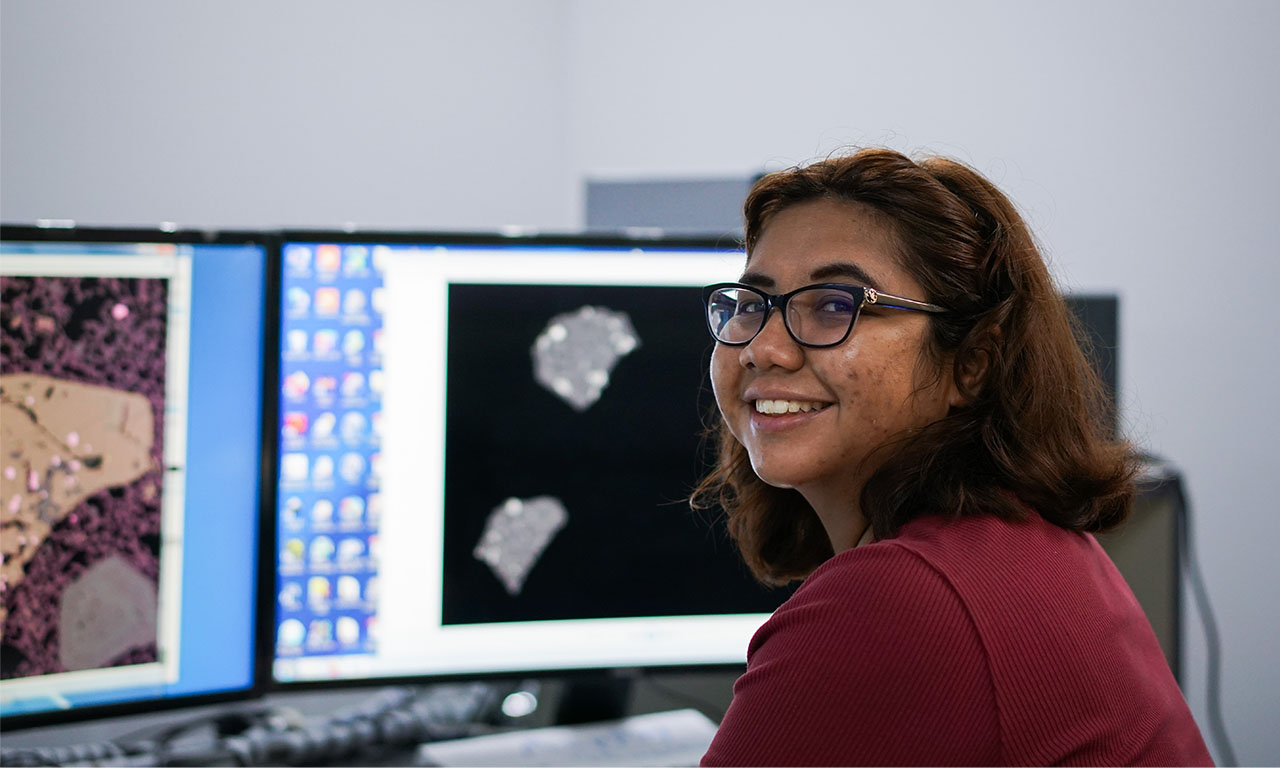 Dr Sri Budhi Utami
Dr Sri Budhi Utami
Could you give us a short summary yourself?
My name is Sri Budhi Utami, or Sri for short. I am originally from Indonesia, but grew up in the Netherlands and Scotland. I studied in Canada before coming to Singapore, where I completed my previous degrees at the University of British Columbia and McGill University, respectively. I have long been fascinated by active volcanoes ever since I visited my first one called Ijen volcano in Indonesia. Ijen's crater hosts the world's largest acidic volcanic lake and is renowned for a phenomenon called the "Blue Fire"!
Outside of science, I am keen on learning foreign languages (I speak Dutch and French), honing my science communication skills, and am a certified Advanced Open Water Diver since 2013.
Could you elaborate more about the applications in your research field?
I studied an active volcano called Kelud volcano in Indonesia, which has a record of producing "pressure-cooker"-style short-lived, highly explosive eruptions as well as lava domes. This wide-ranging spectrum of eruption styles is commonly observed at many active volcanoes as well, but Kelud presents a particularly intriguing example.
Unfortunately, these active volcanoes still pose a high risk to communities living around them. My research aims to improve our understanding of the role that different parameter (magmatic processes, magma storage conditions, and ascent rate) play in producing different eruption styles.
My research connects the magmatic processes that occurred before an eruption underneath the volcano with the unrest signals captured at the surface. This has many implications, ranging from recommendation of new monitoring techniques to improving how we can better anticipate eruptions from volcanoes like Kelud in the future.
Was it an obvious choice for you to go for a career in science?
At first glance, it may seem like an obvious choice for me to go into science because both my parents both have very similar scientific backgrounds - before they retired, my mother was an experimental physicist, and my father fostered a career in the oil and gas industry as a geophysicist. Yet growing up, my parents did not pressure me to pursue a career in science, and even encouraged me and my siblings to explore a wide range of interests, including arts and music.
However, it was not until I was in secondary school in Scotland that I discovered how interesting science can be. I also liked geography and it helped that my family lived within an hour's drive of the Cairngorms National Park, which included Ben Nevis, the highest mountain in the UK. At school, I gravitated more and more towards chemistry, and took part in an annual chemical analysis composition, where students had to analyze how much salicylic acid was in an aspirin tablet. My group won that competition in my 6th year (Scottish equivalent to 2nd year of Junior College).
By then I knew I wanted to continue with science, but wanted more breadth out of my degree, so I chose to pursue my degree at UBC in Canada, with the aid of various scholarships and grants. At UBC, I worked as a part-time research assistant in the Department of Geography helping to build a database of global coral bleaching events. These experiences slowly consolidated my interest in pursuing a career in scientific research over time.

The beautiful Ijen volcano (left) woke Sri's interest in active volcanoes. She did her PhD on Kelud volcano (right). Both volcanoes are found in Indonesia.
How was your PhD defense? And what does it feel like to have to go through your PhD during this pandemic?
To be honest, I was very nervous before my PhD defense, especially the Q&A section. Fidel and I discussed my concerns beforehand, and one thing he said that helped was to treat the Q&A as a discussion between colleagues. In the actual defense itself, my talk went smoothly, and afterwards people commented on how nice and clear it was. This was a huge achievement, as oral presentations have been my Achilles' heel. In fact, during the Q&A, I was stunned that my examiners had such a positive response about the results of my PhD work!
Doing a PhD is already challenging enough, and the global pandemic introduced a high level of unpredictability no one could have anticipated. I had to extend my PhD by six months as a direct result of the pandemic, and there were times when I was not motivated and struggled. However, I admit I am lucky in that I have something to focus on during the pandemic, which kept me going until the finish line. I was also fortunate enough that I had completed the field and experimental components of my projects well before the pandemic. Thus, I only needed to change one project entirely, but was able to quickly adapt and finish the new project in time because of assistance and previous work done by Drs. Li Weiran (Alex), Jason Herrin, and Jeff Oalmann, to whom I am thankful for.
What are the most important things you have learnt in your PhD days?
My PhD was quite ambitious, and have led me to suffer from burnout, among others. I learned from this experience by prioritizing my physical and mental well-being over research output. This included something as simple as taking time off from work when I recognized I was at my mental saturation point, checking in with friends and family, and to set boundaries for myself.
I also learned that having a faculty mentor with whom you can talk about issues other than research is important for personal growth. Special thanks to Asst. Prof. Janice Lee for our chats on Diversity & Inclusion, her experience as a woman in STEM, and her support.
Do you have any advice for current or prospective PhD students?
For prospective PhD students, doing a PhD in a pandemic is tough. Being kind to yourself can make a lot of difference. For current PhD students, my advice is to build up a support system of people (friends, family, advisor, mentor, etc) to whom you can ask for help in times of need and cherish them throughout your stay here. On long days, pace yourself and know when to take a break or stop your task - there is always tomorrow.

